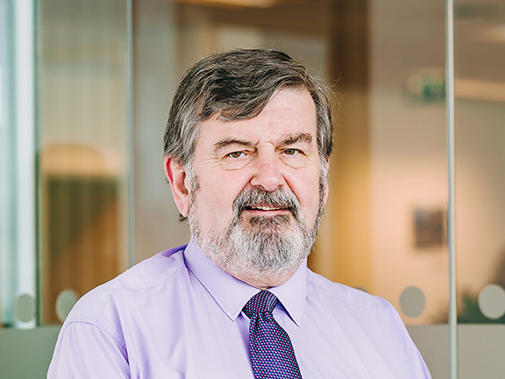Over the last six months, GP consultation levels in Wales have escalated rapidly to way beyond comparable pre-COVID levels. GPs are stressed out, burnt out and opting out.
Our warnings of an impending workforce crisis over the years have fallen on deaf ears and lo and behold, the crisis has arrived. We’ve felt the impact of the increased workload coupled with the huge backlog in the system and the shortage of GPs – it’s no wonder so many of us are seeking a change of career or early retirement in order to cope with the pressure.
The actions required to begin to address the challenges facing us are both immediate and long term. For recovery and sustainability, the first step must be reinforcement of the front line.
We urgently need to see significant investment in general practice: more doctors and more staff. The recurrent £4m additional capacity fund stemming from the recent GMS contract agreement, in place from 22/23 and available to all practices, is certainly a step in the right direction. Only by improving recruitment and retention can we hope to address the workload issues at the root of current problems.
Inflationary pressures must also be addressed, which many practices must face out of their core allocation. Long-term, we need a workforce plan from Welsh Government which should include plans to train a greater number of doctors in Wales to ensure a sustainable and viable future for general practice.
We’ve coped with historic underinvestment in practice premises, but our surgeries cannot cope anymore. Practices cannot respond to increased demands from patients because of limited or no space whilst accommodating COVID-19 precautions, and our technology is slowing us down.
We need the right infrastructure and technology to deliver practice and system resilience. In particular, rapidly rolling out e-prescribing in Welsh general practice will ensure fast and secure transmission of patient prescriptions and information and cut down on unnecessary workload.
GPC Wales is already engaged in tripartite discussions with Welsh Government and NHS Wales looking at a fundamental reform of the 2004 Welsh GMS contract; an opportunity to consider what all practices in Wales should provide in 2023 and beyond, and whether more specialist services could be delivered at scale across localities. Importantly this is also an opportunity to evaluate what other functions best provided elsewhere may have inadvertently become business as usual in general practice over the last 15 years.
Alongside our contractual discussions, Welsh Government must be open and honest with the public about what the health service is able to provide and what it isn’t. Moving forward it will be vital that patients are empowered and given confidence to manage their care, to seek help from the most appropriate specialist, whether that’s a pharmacist, optometrist or physiotherapist.
Likewise, it is important that our GP practice staff are supported to develop their capacity as ‘care navigators’ within the new blended model of GP access in Wales. We have an extraordinary pool of talent working within primary care but more needs to be done to increase awareness of how to access the most appropriate healthcare professional.
This isn’t an exhaustive list, but it’s a good starting point for beginning to address the challenges facing us. If we fail to act now, more GPs will leave the profession, more patients will be put at risk of exposure to unsafe care or have to travel further to access primary health care, fewer junior doctors will choose general practice as a career – it will end up costing the NHS more in the long run.
The ‘Rebuild General Practice’ campaign which the GPDF and BMA are launching today, aims to create a better understanding of the issues and pressures which GPs in Britain currently face.
Whilst we support the overarching aims of the campaign, the key asks are targeted at the UK Government. Our relationship with the Welsh Government is different to our colleagues across the border, and we’ll continue to work in collaboration to achieve the best outcomes for GPs and patients in Wales.
A fortnight ago the Minister for Health and Social Services, Eluned Morgan addressed delegates at the Welsh LMC Conference, and we were pleased to receive such a supportive speech.
The Minister thanked GPs for their exemplary service during the last two years and acknowledged the extreme pressure the service is and has been under. The Minister does, I believe, truly understand the challenges facing the profession and we will continue to work together to create a safe and sustainable service of which we can all be proud.
Phil White is chair of the BMA Welsh GPs committee

